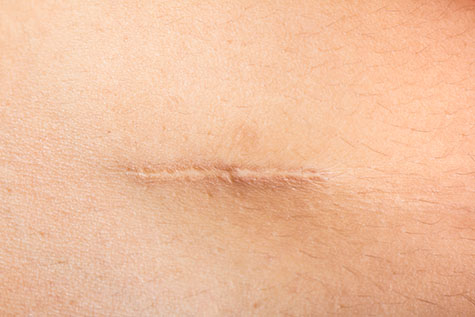What Causes Scars?

Scars create thick, firm areas of tissue that typically develop as your body heals from an injury to the skin. Soon after healing, you will notice the scar has a pink or red color, but over time, it will typically become either lighter or darker than your surrounding skin.
What Types of Scars Are There?
In addition to normal, “fine-line” scars, some common types of scars include:
- Keloids
- Hypertrophic scars
- Atrophic (sunken) scars (including acne scars)
Who Gets Scars?
Anyone can get a scar if they injure their skin. You may be more likely to have a certain type of scar, like keloids, if you have a family history or a darker skin type.
How Can I Prevent Scars?
If you have an injury, properly caring for the wound is the best way to reduce the appearance of a subsequent scar. This care includes keeping the wound clean, applying petroleum jelly to the wound site, changing bandages regularly, and applying sunscreen after you have healed.
Why Treat Scars?
A majority of patients choose to treat scars for cosmetic reasons. However, you can also opt to treat a scar if it restricts your movement or becomes painful or itchy. Some may even want to treat a scar to remove the reminder of a traumatic injury. Regardless of your reason, a board-certified dermatologist can develop a tailored treatment plan.

How Can I Treat Scars?

Your dermatologist will suggest a treatment plan that is suited to the type of scar you have and whether your wound is still healing. Some treatment options for scars include:
- Applying pressure to a healing wound
- Silicone gel sheets or ointments
- Laser treatments
- Corticosteroid injections
- Cryotherapy
- Surgical scar removal
Schedule an Appointment
If you are bothered by a scar, a dermatologist can help by determining which type of scar you have and your best treatment options. At Arlington Dermatology, your board-certified dermatologist will suggest a treatment plan to improve the appearance or minimize the symptoms of your scar.
To schedule an appointment at Arlington Dermatology, please call our office or request an appointment online.



